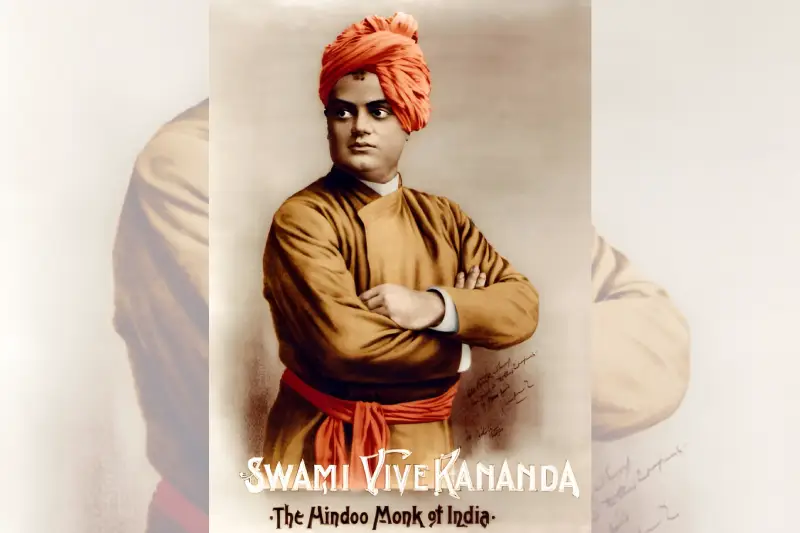Swami Vivekananda Chicago Speech 1893
On 11 September 1893, a young monk from India walked into the World’s Parliament of Religions in Chicago and delivered words that continue to echo across time. Swami Vivekananda Chicago speech was not just an address. It was a defining moment that honored Sanatan Dharma and projected Bharat’s civilizational voice onto the global stage.
More than 130 years later, this historic event still resonates as one of India’s greatest cultural milestones. It was a reminder that spirituality, tolerance, and unity are not abstract ideals but living values rooted in India’s ancient tradition.
The Historical Backdrop of 1893
The late 19th century was a time of rapid industrialization and colonial dominance. The West viewed itself as the epicenter of progress and often dismissed non-Western civilizations as inferior. India, under British rule, was portrayed as backward, its traditions reduced to stereotypes.
Against this backdrop, the World’s Columbian Exposition was held in Chicago. A key highlight was the Parliament of Religions, where spiritual leaders from across the world gathered to present their traditions. Few expected India, a colonized land, to make a lasting impression. But that perception was about to change forever.
Swami Vivekananda’s Journey to Chicago
Swami Vivekananda, born Narendranath Datta in 1863, was a disciple of Sri Ramakrishna Paramahansa. Trained in both modern education and Vedantic philosophy, Vivekananda carried India’s spiritual heritage with clarity and confidence.
His journey to the Parliament was not easy. Without funds or institutional support, he traveled across India to raise resources, witnessing firsthand the poverty and struggle of his people. Yet his mission was larger — to share Sanatan Dharma with the world and to remind Indians themselves of the strength of their spiritual roots.
(For more on his biography, see Ramakrishna Mission which continues his legacy.)
The Opening Words That Made History
On 11 September 1893, Swami Vivekananda stood before a packed hall. His first words, “Sisters and Brothers of America”, received a standing ovation that lasted nearly two minutes.
Why did those simple words move the audience so deeply?
Because they embodied universal brotherhood, a central tenet of Sanatan Dharma. At a time when religious rivalry was common, Vivekananda’s greeting broke barriers. He spoke not as a representative of a sect but as a voice of humanity.
Core Themes of the Chicago Speech
Swami Vivekananda’s Chicago address was short but profound. He did not argue superiority. Instead, he spoke of tolerance, unity, and acceptance.
Respect for All Religions
He emphasized that no single religion has a monopoly on truth. Just as rivers flow into the same ocean, different paths lead to the same divine reality.
The Spirit of Sanatan Dharma
Sanatan Dharma is not a rigid doctrine but a way of life that embraces diversity. Vivekananda explained that Hinduism has always welcomed new ideas and respected every seeker’s journey.
A Call for Harmony
His words warned against fanaticism and intolerance. He called these forces the greatest enemies of humanity and argued for harmony as the foundation of peace.
This message was radical for its time and remains urgent today.
Why the Speech Mattered for Bharat
For Indians under colonial rule, Vivekananda’s speech was a turning point. It shattered the myth that India’s culture was inferior. Here was an Indian monk, speaking fluent English, holding the world spellbound with the wisdom of his tradition.
His success also restored pride among Indians. Freedom fighters later drew strength from his vision. Mahatma Gandhi once said that after reading Vivekananda, his love for his country became “a thousand-fold.”
Global Impact and Western Reception
The Chicago speech created a wave of interest in Vedanta and yoga across the United States and Europe. Vivekananda stayed in the West for several years, delivering lectures, writing, and founding the Vedanta Societies, many of which still operate today.
His message of universalism deeply influenced American thinkers. It also planted the seeds for the global spread of yoga and meditation, practices that are now part of everyday life in the West.
(For context, read about World Parliament of Religions, which still continues as an interfaith platform.)
The Eternal Message of Sanatan Dharma
At the heart of Vivekananda’s speech was the timeless philosophy of Sanatan Dharma. Unlike dogma-driven systems, Sanatan Dharma is ever-living, adaptable, and inclusive.
It rests on principles such as:
- The divinity of every soul
- Unity in diversity
- Tolerance as a spiritual duty
- Harmony among all paths
These values explain why Hinduism has survived and thrived for thousands of years, adapting while staying rooted in its eternal truths.
Editorial Reflection: Why 11 September 1893 Still Matters
From an editorial perspective, the relevance of Vivekananda’s Chicago address cannot be overstated. The date 11 September carries tragic associations in modern times, but for Bharat it first marks the day when India gave the world a message of peace.
In today’s polarized world, his vision remains a moral compass. Whether in interfaith dialogue, cultural pride, or global unity, his call is still urgent.
Swami Vivekananda’s Legacy Today
The legacy of the speech lives on in many forms:
- Educational institutions under the Ramakrishna Mission continue his vision of service and spirituality.
- Leaders across the world quote his words when addressing religious harmony.
- In India, his birthday, 12 January, is celebrated as National Youth Day, inspiring new generations.
His Chicago speech remains central to his legacy, often read in schools and commemorated at cultural events.
Conclusion
The Chicago Speech of 11 September 1893 was more than a moment in history. It was Bharat reclaiming its voice, honoring Sanatan Dharma, and reminding the world that spirituality can unite rather than divide.
As humanity faces conflicts rooted in religion and identity, Vivekananda’s message offers a timeless guide: respect every path, honor diversity, and see the divine in all.
For India, it is an enduring source of pride. For the world, it is an invitation to live with compassion and unity.



